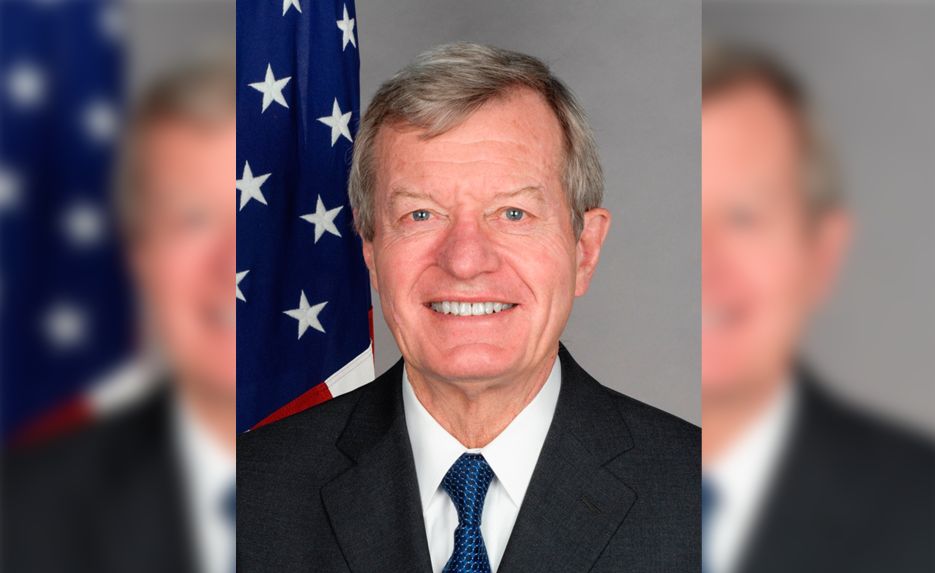A year ago today, Tashi Wangchuk disappeared. He was recently indicted and is now awaiting trial, facing a 15-year sentence for the baseless charge of inciting separatism.
His crime: advocating Tibetan language rights in an interview with the New York Times – hardly a threat to national security.

On 27 January 2015, two cars filled with men not wearing uniforms or presenting identification arrived at Tashi’s home, claiming he needed to go with them to handle some business registration. Two hours later, he was in police custody at the Yushu Public Security Bureau, locked into a tiger chair where he was kept until the following evening, continuously interrogated. They threatened him and his family. They demanded if he was in touch with Tibetan separatists abroad. A few days later, in a different detention center, he was subjected to a week of constant interrogation, during which he was repeatedly beaten by two Tibetan police officers. His family wasn’t notified of his detention until 24 March, 57 days later, when they were told that he was being charged with inciting separatism.
The charge arises from a distorted investigation into the New York Times video carried out in February by the Tibet research branch of the Ministry of Public Security, well before Tashi’s first meeting with his lawyers in June. According to the February investigation, in the video Tashi had intentionally acted to incite separatism, break Tibetan social stability, and discredit China internationally.
Tashi has also been active on Weibo and his last post before being detained is illustrative of the type of vocabulary in the video that the government claims discredits China and incites separatism. As reported by the New York Times, on 24 January, Tashi reposted a comment urging Chinese legislators to enhance bilingual education and hire more bilingual civil servants – hardly the rhetoric of an insurrectionist. The charge against Tashi is absurd.
Tashi does not advocate separatism. He only sought to promote Tibetan language education, guaranteed under Chinese and international law, and to use Chinese law to pressure officials to faithfully implement Tibetan language rights.
International standards are quite clear. Advocating Tibetan language rights is not a crime. The International Covenant on Civil and Political Rights, which China has signed, holds that minorities shall not be denied the right, among others, to use their own language. The Declaration on the Rights of Persons Belonging to National or Ethnic, Religious and Linguistic Minorities, which provides further guidance on international standards, also calls on states to take positive measures to create favorable conditions for minorities to develop their language.
In 2013, UN Special Rapporteur on minority issues Rita Izsák voiced concern that defending minority language rights has been associated with separatist movements by some countries where the unity of the state is largely influenced by the political narrative of a “single national language as a means of reinforcing sovereignty, national unity and territorial integrity.” In such countries, assimilationist narratives often extend to every aspect of minority culture, from language to religion, subsuming it under the oppressive myth of national unity through the forced adoption of majority culture. Minority language, as with folklore or custom, are downplayed to the level of tourist attraction for majority amusement. This is widespread in China.
Rather than treating efforts to reclaim rights for minority language and culture as acts of separation, Izsák explains, protecting the language rights of minorities is not only a human rights obligation but also essential to good governance, conflict prevention, and social stability.
That Chinese law supposedly guarantees minority language rights only makes the charges against Tashi all the more ludicrous. The constitution provides that all nationalities have the freedom to use and develop their own written and spoken language. This is also protected in the Regional Ethnic Autonomy Law, which goes on to note educational organizations with mostly ethnic minority students should strive to rely on textbooks and instruction in their own language. The national plan on education reform places similar emphasis on linguistic minority rights. It states that no effort shall be spared to advance bilingual teaching and that minority rights to education in their native language shall be ensured.
Despite such protections, China has incrementally repressed Tibetan language rights with the same increasing ferocity with which it has assaulted virtually every other aspects of Tibetan culture.
Tashi told the New York Times that his passion for language rights campaigning, in part, began with his desire to find a place for his two nieces to study Tibetan after local officials closed a small school where monks had offered Tibetan language classes. Public schools throughout Tibet have largely abandoned bilingual education, approaching Tibetan the same way it would a foreign language, says the International Campaign for Tibet.
Regulations in 2010, that severely limited the use of Tibetan language in schools sparked major protests in Qinghai and lead to an urgent appeal before the Human Rights Council. In 2015, regulations on bilingual education instructed officials to “unswervingly implement the national common language [Mandarin]…to ensure that minority students master and use the basic national common language.” Such policies give rise to the accusations that advocacy for minority language is a separatist attack on politically crafted national unity. This is wrong.

On 10 December, international human rights day, U.S. Ambassador Max Baucus asked, “China’s constitution states that ‘all nationalities have the freedom to use and develop their own spoken and written languages.’ So I ask why Tashi Wangchuk, a Chinese citizen who is deeply interested in education, remains in jail for his peaceful advocacy of Tibetan language education.”
Now, more than a month later, with the stakes for Tashi highly increased, the answer to Ambassador Baucus remains the same, because in China the law only matters as far as it suits the interests of the state.
Indicting Tashi for insisting on nothing more than for the government to uphold its own laws on language rights is as much an indictment against China’s claims to be a laws-based society. Tashi should be released immediately. Instead, the state now seems likely to condemn him to prison to cover its own falsehoods.
